 IT major Wipro on Wednesday said it has partnered with the University of Massachusetts, Boston to jointly launch a 12-month fellowship programme in the US to train 120 school teachers over three years.
IT major Wipro on Wednesday said it has partnered with the University of Massachusetts, Boston to jointly launch a 12-month fellowship programme in the US to train 120 school teachers over three years.
“The one-year Wipro Fellowship programme is aimed at developing competencies of teachers and making them catalysts of change in their schools, districts and among educators,” Wipro chief sustainability officer Anurag Behar told PTI.
He, however, did not comment on the investment being made by Wipro.
The programme will be entirely funded by Wipro and will see 40 experienced science teachers in the Boston and New York areas (from those engaged with kindergarten to grade 12) being selected every year after a rigorous selection process.
The nomination process for the fellowship will commence in January, 2013 and the selection is due to be completed by March, 2013. The course is scheduled to begin on September 1, 2013.
“Selected teachers will undergo 250 hours of intense capability development training by a team led by Arthur Eisenkraft, Professor of Science Education and Director of the Centre of Science and Math in Context (COSMIC) at the University of Massachusetts Boston,” he said.
Each teacher will continue to teach in their respective schools, and during the duration of the fellowship, they will also engage with local communities and other interested teachers to catalyse broader improvement.
“The programme deeply integrates three dimensions to help enable this: leadership, reflective practice and adult learning,” he said.
The University will partner with a university in the New York City area and multiple school districts in the Boston and New York to administer this programme.
Wipro is already working with schools in India for over a decade. Its “Applying Thought in Schools” initiative is aimed to help being in societal change and development by improving the quality of education.
Source: PTI








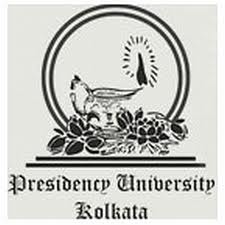
 The resignation of educationist and college alumnus Sukanta Chaudhuri from the mentor group of Presidency University over showering of benefits, while depriving other varsities, has support of educationists.
The resignation of educationist and college alumnus Sukanta Chaudhuri from the mentor group of Presidency University over showering of benefits, while depriving other varsities, has support of educationists.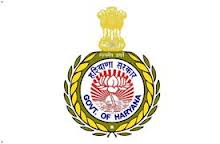

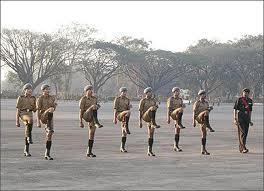
 A military academy set up here by a former commando trainer, who left his plum posting after being inspired by actor Nana Patekar’s 1991 film ‘Prahar’, has been working towards not only making soldiers out of children but also bringing them up as sensitive citizens.
A military academy set up here by a former commando trainer, who left his plum posting after being inspired by actor Nana Patekar’s 1991 film ‘Prahar’, has been working towards not only making soldiers out of children but also bringing them up as sensitive citizens.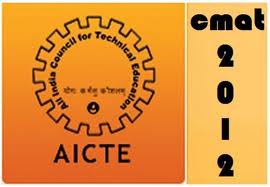
 Common Management Admission Test (CMAT) to accept registrations for the test till September 2. The CMAT is a compulsory test for students who wish to take admissions in MBA and MCA colleges approved by the All India Council for Technical Education (AICTE) from the academic year 2013-14.
Common Management Admission Test (CMAT) to accept registrations for the test till September 2. The CMAT is a compulsory test for students who wish to take admissions in MBA and MCA colleges approved by the All India Council for Technical Education (AICTE) from the academic year 2013-14.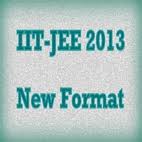

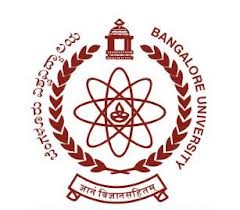
 Bangalore University has decided to cancel almost 120 seats under the management quota in seven colleges for the Master of Education (MEd) programme in academic year 2012-13.
Bangalore University has decided to cancel almost 120 seats under the management quota in seven colleges for the Master of Education (MEd) programme in academic year 2012-13.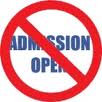
 With students finding it increasingly difficult to get admission in city colleges due to soaring cut-offs every year, Delhi government on Wednesday decided to conduct an ‘in-depth study’ to find a solution to the problem.
With students finding it increasingly difficult to get admission in city colleges due to soaring cut-offs every year, Delhi government on Wednesday decided to conduct an ‘in-depth study’ to find a solution to the problem.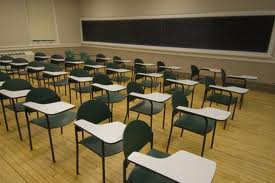
 In Gujarat, a total of 6673 seats are in various diploma courses across various institutions. In all, there are 1225 seats in the government run polytechnics, 37 in polytechnics run government grants, 4428 in self finance institutes and 983 seats are yet to be filled up by students.
In Gujarat, a total of 6673 seats are in various diploma courses across various institutions. In all, there are 1225 seats in the government run polytechnics, 37 in polytechnics run government grants, 4428 in self finance institutes and 983 seats are yet to be filled up by students.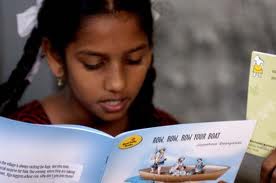
 Uttar Pradesh government on Wednesday gave clearance for providing a consolidated one-time Rs 30,000 financial help to Class XII passout girls, hailing from weaker economic background, for their higher education.
Uttar Pradesh government on Wednesday gave clearance for providing a consolidated one-time Rs 30,000 financial help to Class XII passout girls, hailing from weaker economic background, for their higher education.











